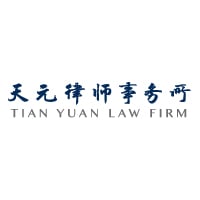

Greater China country counsel | China HP Company



Yuanjie (Joanna) Zhang
Greater China country counsel | China HP Company
How do you approach managing legal aspects during periods of instability or crises to ensure the organisation’s resilience?
In times of instability or crises, ensuring the resilience of a legal team involves several key factors, such as clear communication, adaptability, and robust support systems.
Firstly, maintaining open communication is crucial. Team members should be kept informed about changing circumstances and strategic priorities to remain prepared for any adjustments. I fostered an environment of open communication within my team by hosting monthly meetings and biweekly one-on-one discussions to update them on changes and trends within and outside the organisation. This approach allowed us to periodically discuss challenges and trends we were facing, such as geopolitical tensions between the US and China and cross-border data transfer restrictions that could impact our business. By doing so, my team was effectively prepared to take proactive measures and address these issues when they arose.
Flexibility and the ability to adapt swiftly to new challenges are crucial traits. Equally important is fostering a culture of continuous learning and development. Providing access to resources such as mental health support, professional development opportunities, and optimised workflows can help team members manage stress and maintain focus. HP was the first company to adopt flexible working hours, allowing team members to work partially from home. This flexibility enables them to set their own pace of work while receiving necessary support. Additionally, I encourage my team members to take full advantage of the training opportunities available to them. These programs cover a broad range of topics, including the latest regulatory updates and aspects of mental and financial well-being. This approach ensures that my team can evolve and adapt promptly to meet work demands.
Additionally, by leveraging technology to automate routine tasks and enhance efficiency, my team can focus on more critical issues, thereby strengthening overall resilience. We are actively investigating AI solutions to improve our capabilities and efficiencies in handling legal work. Specifically, we are exploring the potential acquisition of AI tools to automate our contract review and approval processes. I am convinced that the adoption of AI and automation tools can significantly elevate the efficiency of an in-house legal team to an unprecedented level.
What are the main projects that you have been involved in recently?
Assist in the legal integration of HP’s self-developed AIGC tool into HP China products, including obtaining necessary approvals from PRC authorities to facilitate the product launch.
Establishing an internal compliance scheme for personal information protection in accordance with the Personal Information Protection Law and evaluating the cross-border data transfer process to ensure it complies with legal requirements.
Implementing automated solutions to screen promotional and marketing materials for compliance with the CN Advertisement Law, as well as evaluating and adopting legal AI solutions to automate the contract review and editing process.
What are some of the main trends impacting the industry sector you work in China?
The information technology sector in China is undergoing significant transformation driven by a multiple trend. Here are some notably ones:
Data and Cybersecurity: With the increasing digitalisation and the generation of vast amounts of data, there is a crucial need to protect sensitive information from cyber threats. The Chinese government has been enacting stringent cybersecurity laws and regulations to safeguard national security and individual privacy. We have been meticulously monitoring the development of China’s regulatory landscape in this domain to address its implications and ensure compliance.
US restrictions on the export of high-tech products to China: These restrictions have created challenges for Chinese companies reliant on advanced technologies and components from the United States. In response, China has been accelerating its efforts to develop and produce high-tech products domestically. This move towards self-reliance is further emphasised by China’s policy of promoting the procurement of locally produced products. The government’s emphasis on supporting homegrown technologies and innovation aims to reduce dependence on foreign suppliers. We have been actively engaging in discussion with relevant authorities to make sure the need of foreign invested companies is also considered when forming policies in domestic procurement.
Adoption of AI: Rapid advancements in AI, big data, and cloud computing are reshaping the IT landscape in China. We are also increasingly leveraging these technologies to enhance legal department’s operations can catch up with this trend. We are exploring the opportunities to improve efficiency, drive innovation and simplification. The integration of AI and big data analytics is enabling us to make data-driven decisions in risk taking to better support business growth.
How do you build relationships with other teams in the company?
Establishing effective relationships with other teams in a company starts with clear communication and mutual respect. Regular interdepartmental meetings can serve as a platform for sharing goals, challenges, and achievements, promoting collaboration. Recognising the unique contributions and perspectives of each team can lead to a more unified work environment. Additionally, participating in joint projects or cross-functional teams can reduce barriers and build trust. Encouraging social interactions, such as team-building activities or informal gatherings, can also enhance these relationships. By being proactive, supportive, and open to feedback, employees can develop a network of strong, positive relationships that improve the overall efficiency and morale of the company.